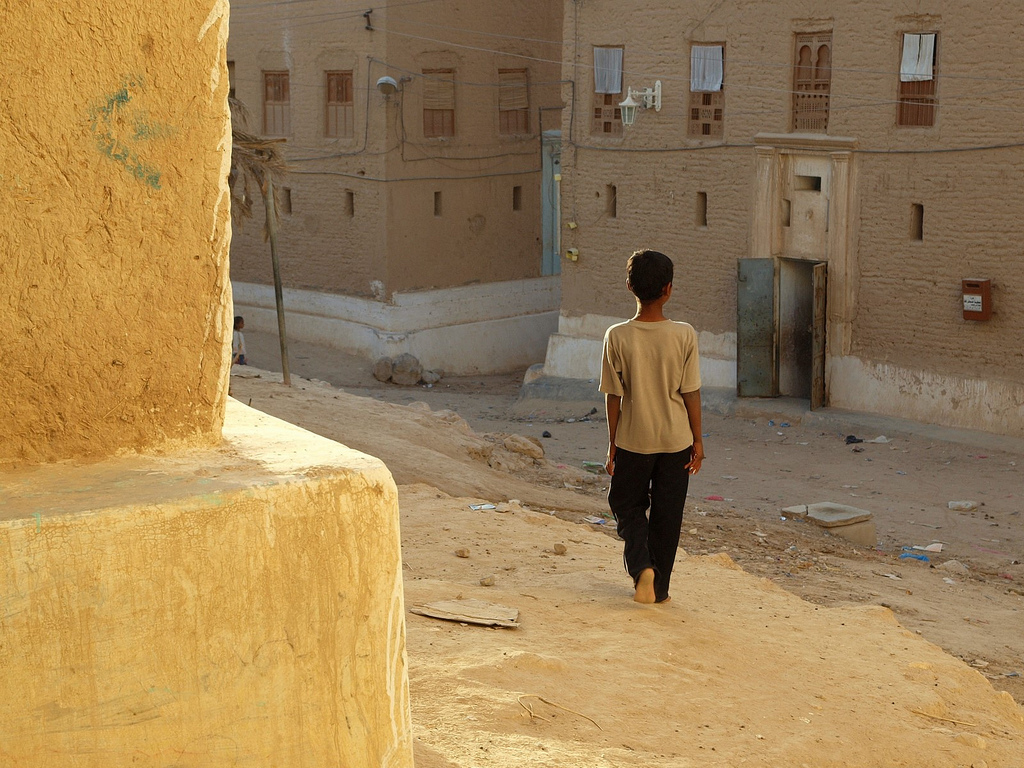
Yemen is a nation under siege. The state is rife with conflict between the Sunni-majority Sana’a government and the Zaydi Shi’a minority insurgency known as the Believing Youth or the Houthis. The group takes its name from military commander and founder of the group, Hussein al-Houthi, who was killed in a 2004 skirmish with government forces. Both anti-American and anti-Zionist, the group has grown tremendously in numbers; some experts estimate Houthi membership by both armed and unarmed supporters to be close to 100,000 men and women.
Houthi discontent with the Yemeni government truly gained steam in 2004. The opposition group suffered tremendously under former President Ali Abdullah Saleh, himself a Zaydite. In 2011, simmering Houthi frustration boiled over during the Arab Spring, as protests spread across the country demanding the resignation of President Saleh. After forcibly resigning due to injuries sustained by a rebel missile attack on the presidential palace, the US backed a governmental transition that replaced Saleh with current Yemeni president Abd Rabbuh Mansur Hadi.
The group began its conquest of northern Yemen, successfully consuming the capital and several northern governorates in the country. Discontent grew over the Houthi’s lack of representation in national politics, as well as cuts to fuel subsidies in the Houthi-majority north. The opposition group exploited the lack of military strength in Yemen’s capital of Sana’a and seized the city with almost no resistance. Since then, the Houthis have assumed a supervisory role over government operations, handling the pay of government officials and reviewing documents from the state-owned Safer oil company.
The Houthis clearly have widespread influence politically as well. The group disapproved of Ahmed Awad bin Mubarak’s appointment to the Prime Minister post. Protests in the capital last Thursday forced him to decline the post, and hours later, two separate suicide bomber attacks in Sana’a killed at least 67 people.
Yet, there may be hope for stability, since Islamist and Shiite rebel leaders both approved of President Saleh’s appointment of Khaled Bahah, Yemen’s ambassador to the United Nations, as the new prime minister of the country. While still early in its development, the bipartisan support of Bahah is promising for putting Yemen on the right track in the coming years.
Instability in Yemen is in no neighboring state’s interest. Saudi Arabia, which borders Yemen to the north, is increasingly worried about the effect a pro-Shi’a coup could have on the religious balance of power within the region. Though Iran officially denounced any support for the take over, the mistrust caused by the Houthi overthrow will have lasting effects on diplomacy and peace in the Middle East.
Al-Qaeda in the Arab Peninsula (AQAP) will also prove problematic for creating lasting peace for Yemen in the short term. As a Salafist Jihadist group with growing power in the south of the country, AQAP may exploit religious differences and labels to create a civil war in an attempt to clinch power in Sana’a. The growing secessionist movement in the south also plays well into the hands of Houthi leaders, who could easily split the country to avoid sectarian strife in their newly acquired country.
The struggle for Sana’a has displaced over 30,000 civilians already, and continued attacks and instability in the capital and throughout the country will undoubtedly double or triple the number of people trying to escape bloodshed.
While the Gulf Cooperation Council condemned the Houthi overthrow of Yemen’s capital, they put forward no tangible strategy to eliminating and degrading the group’s power in Sana’a. Without guaranteed stability in Yemen, Saudi Arabia may be the next target for extremist groups able to penetrate the oil-rich country from Yemen in the south and Iraq in the north if the Islamic State continues to march south.
Regional actors must recognize their responsibility to protect the Arab world’s poorest country and realize the importance of restoring order to Sana’a before international terror organizations beat them to the punch.
The views expressed by the author do not necessarily reflect those of the Glimpse from the Globe staff, editors, or governors.





